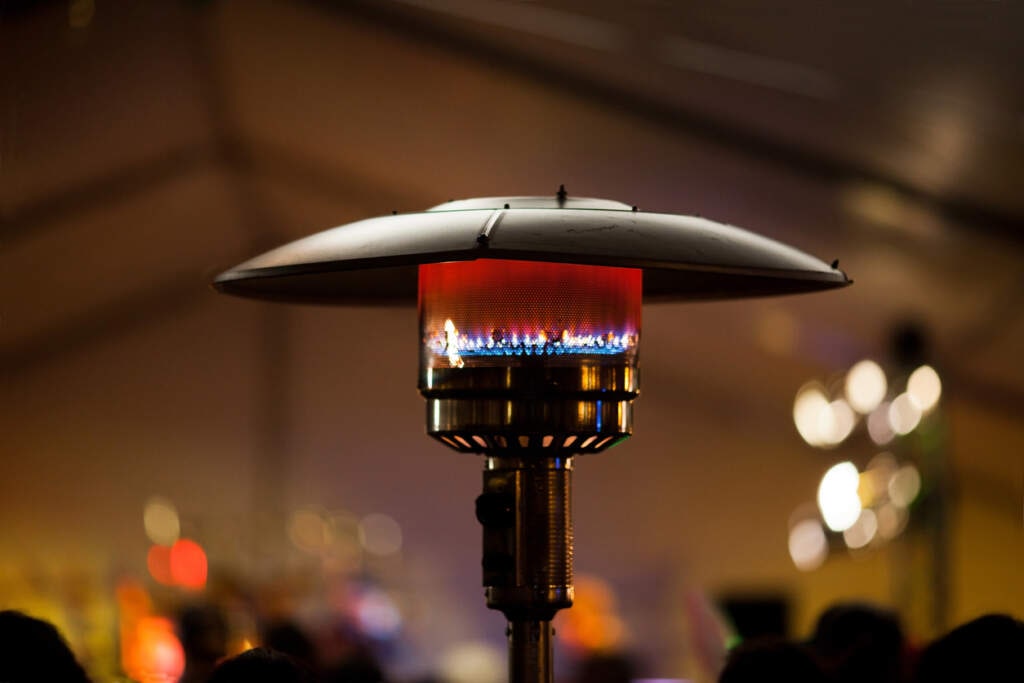
- Click Frenzy Shoe Paradise!
- Best Click Frenzy Deals For Your Home
- Sheraton Luxury Manchester Sale
- Sheet Sets
- Pillows and Pillowcases
- Home & Living Superstore
- Devanti Potable Ice Maker
- Salt & Pepper & Ecology Homewares
- Tech Specials for Click Frenzy
- Click Frenzy Christmas Specials
- More Exciting Click Frenzy Deals
As the air gets chillier, staying warm and cosy indoors gets more and more tempting. Avoid the temptation with an outdoor heater! Whether you’re looking for a patio heater or an outdoor heater for your business, outdoor heaters bring the warm and cosy outside, so you can enjoy winter without hibernating!
Whether you’re looking to enjoy outdoor gatherings during the cooler months or want to create a cosy ambience for your patio, choosing the right outdoor heater is crucial. In the blog, we’ll discuss the different types of outdoor heaters and their benefits so you can find an outdoor heater that suits your needs.
What is the Best Outdoor Heater to Buy
How effective are outdoor heaters? This all depends on the type of outdoor heater you use. There are several types of outdoor heaters available, each with its advantages and considerations. The most common types are gas, infrared and electric outdoor heaters. What you choose should depend on your space, budget and personal preferences.
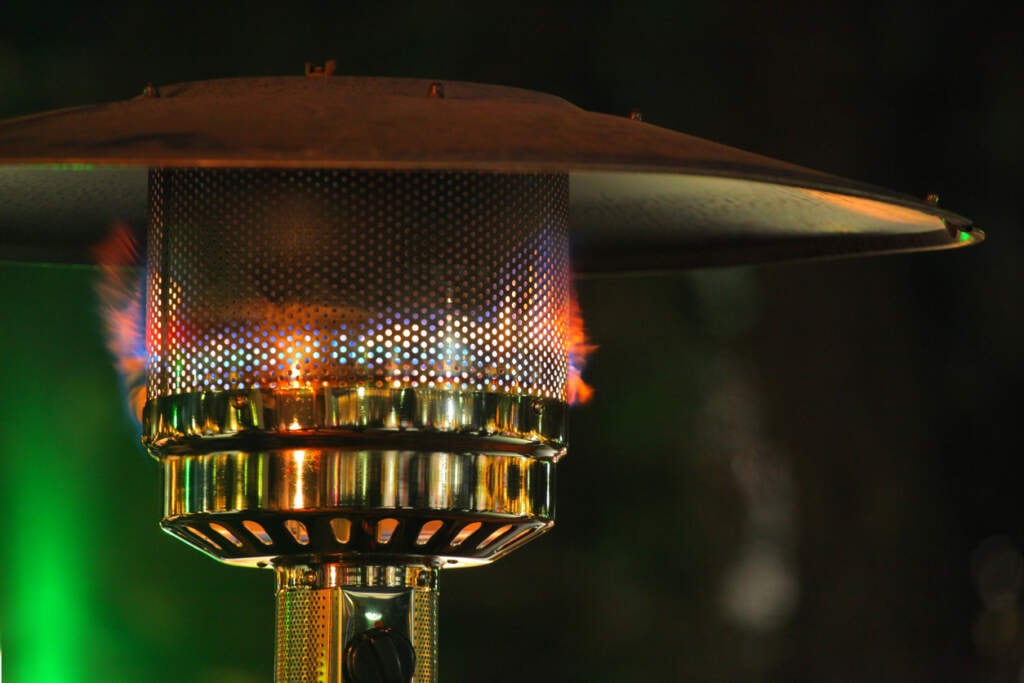
Gas Outdoor Heaters
Gas heaters, either propane or natural gas, require a gas line connection and are often permanently installed in outdoor spaces. They provide a continuous heat source and eliminate the need for refilling fuel. Usually, outdoor gas heaters require professional installation.
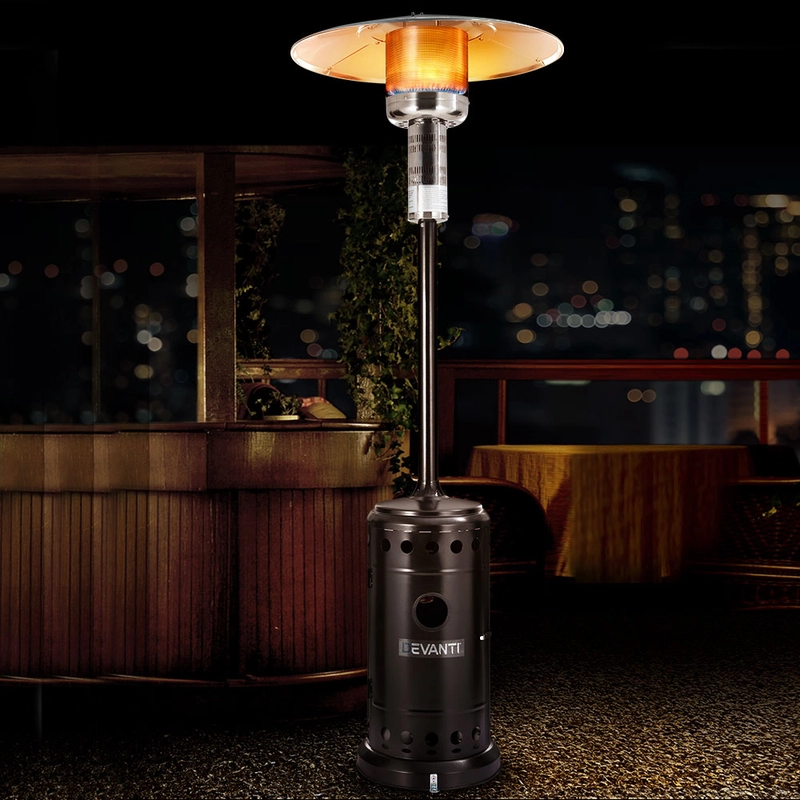
Advantages
- Provides powerful heat that is suitable for larger outdoor areas
- Portable and can be placed anywhere outdoors, since they don’t rely on electrical outlets
- Quick and efficient heat production
- Can be used during power outages
Disadvantages
- Requires a constant supply of propane or natural gas, and regular refilling and replacement of gas tanks
- Open flames can present a fire risk
- Produces combustion byproducts, so ventilation is necessary for enclosed spaces
- May require professional installation
Infrared Outdoor Heaters
Infrared heaters emit instant and radiant heat, warming directly without heating the surrounding air. These heaters are available in various fuel types, including electric, propane, and natural gas.
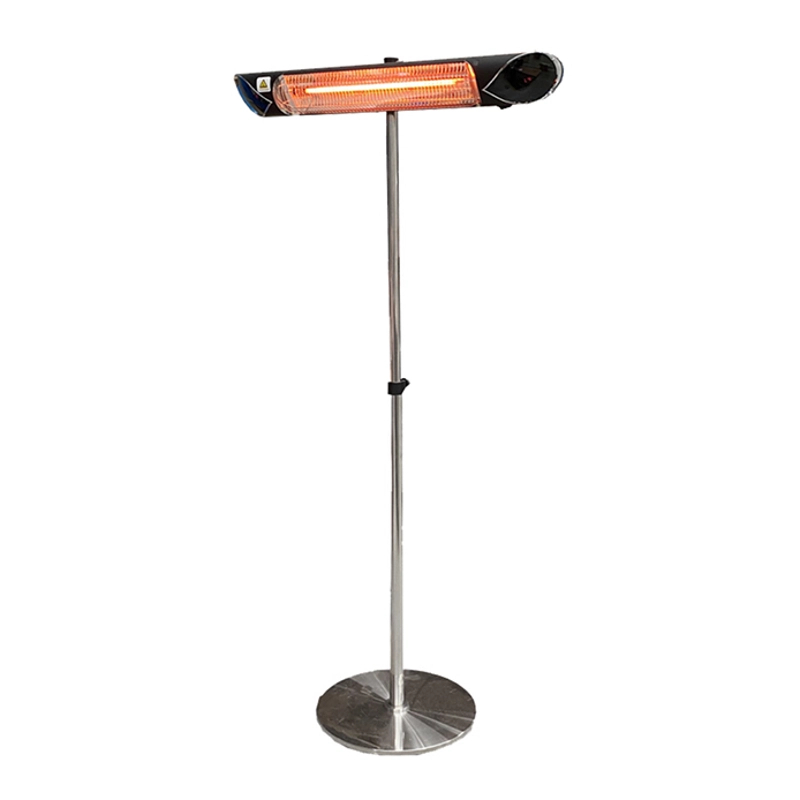
Advantages
- Direct and instant heat with no warm-up time
- Energy-efficient, as infrared heaters don’t waste energy heating surrounding air
- Can withstand wind better than other types of heaters
Disadvantages
- Limited range of heat coverage compared to gas heaters
- Can be more expensive upfront compared to other options
- The heat intensity decreases with distance, so placement and close proximity is relative to its effectiveness
Electric Outdoor Heaters
Electric heaters are convenient and easy to use. They require an electrical outlet for operation and are suitable for smaller spaces. Electric outdoor heaters provide instant heat but must be positioned near a power source. Alternatively, you can use an extension cord.
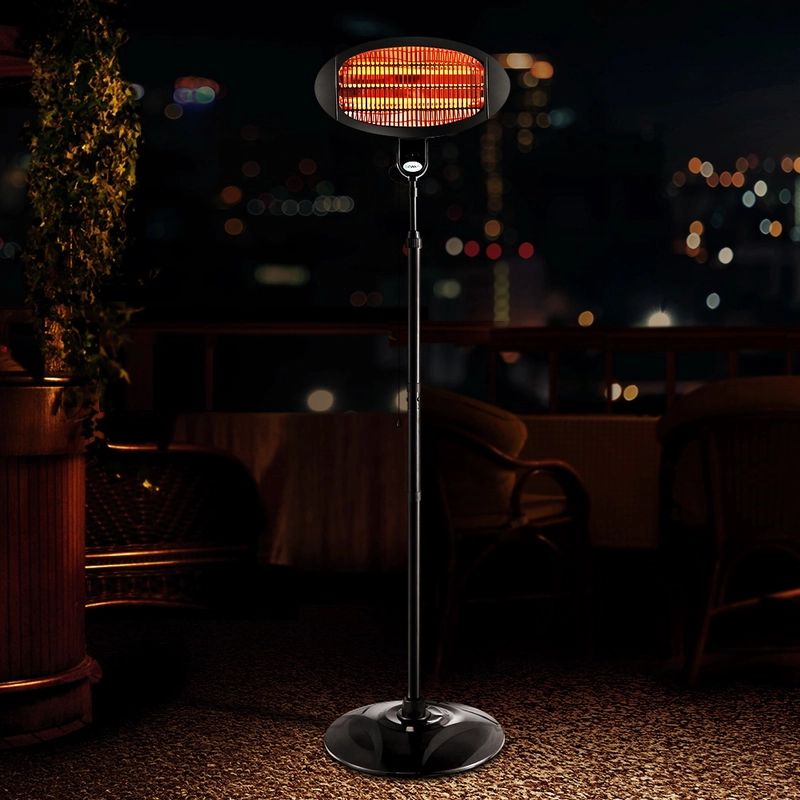
Advantages
- Easy to use and operate
- No open flames or gas emissions, making them safer and cleaner
- Instant heat with no warm-up time
- Can be used in enclosed spaces as they don’t produce harmful fumes
- Some models offer adjustable heat settings and directional heating
Disadvantages
- Requires access to electrical power or an outlet
- May not generate as much heat as gas-powered heaters
- Increased electricity consumption can lead to higher energy costs
Outdoor Fireplaces & Chimineas
Outdoor fireplaces and chimineas bring both warmth and a cosy ambience to outdoor spaces. Not only are they warm and cosy, but they can be used for cooking and roasting food, bringing versatility to outdoor heaters.
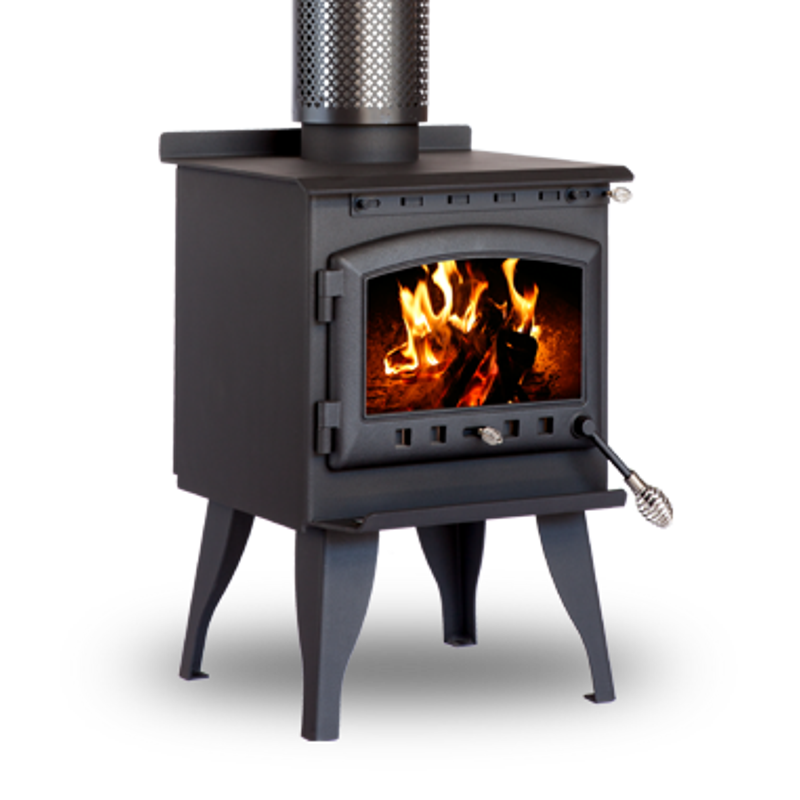
Advantages
- Provides both heat and ambience
- Longer burn times compared to fire pits
- Some models offer smoke control features
Disadvantages
- Requires monitoring and maintenance while on
- Smoke and ash production may require proper ventilation and cleaning
- Fireplaces and chimineas are typically stationary and may require professional installation
- Safety precautions are essential due to open flames and potential fire hazards
Outdoor Fire Pits
Outdoor fire pits are versatile and portable, making them a popular choice for outdoor warmth. They create a focal point and spot for gathering, offering warmth and cosiness. Whether you’re roasting marshmallows or sitting around chatting, outdoor fire pits are ideal for outdoor gatherings.
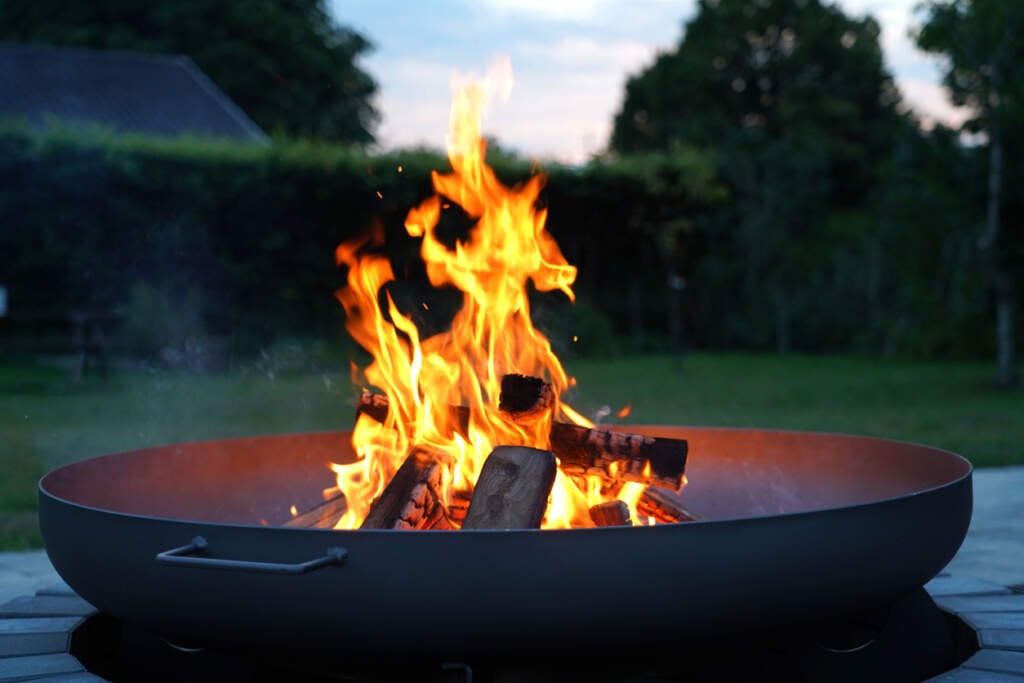
Advantages
- Versatile and can be moved or relocated easily
- Offers a cosy, rustic ambience and a gathering spot
- Can also be used for cooking or roasting food
- Suitable for larger groups, as fire pits can warm multiple people
Disadvantages
- Open flames require caution and monitoring
- Smoke and ash can be bothersome and requires proper ventilation
- May not provide as much focused heat as other heaters
- Requires regular cleaning and maintenance
Outdoor Strip Heaters
Outdoor strip heaters are space-saving and efficient. They can be easily mounted on walls, ceilings or posts, making them ideal for patios. With weather-resistant features, outdoor strip heaters are durable and offer adjustable heat settings for optimal comfort.
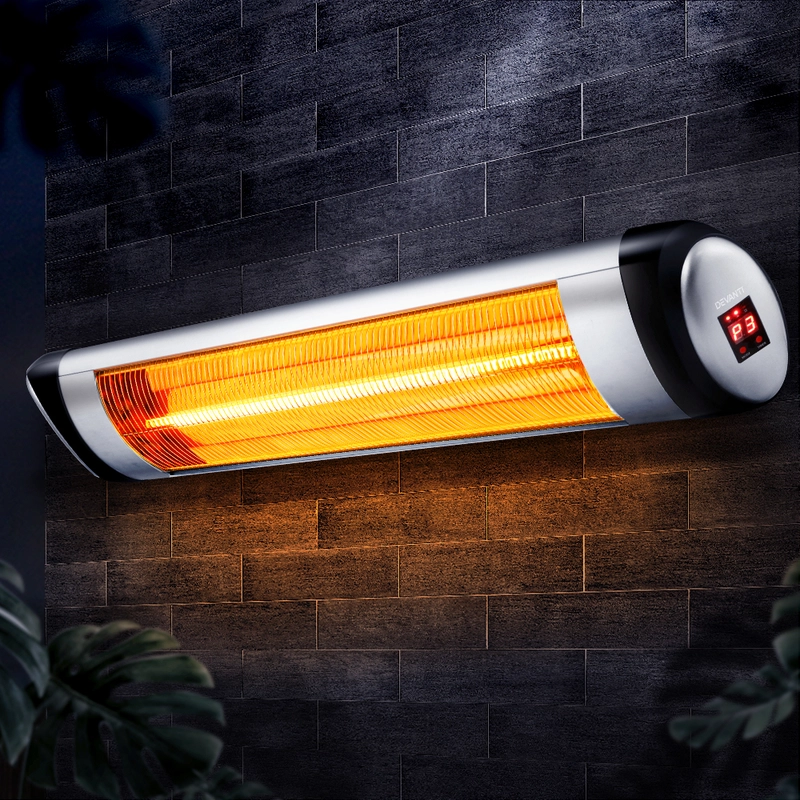
Advantages
- Can be mounted on walls, ceilings, or posts, saving space.
- Provide widespread heat coverage.
- Weather-resistant and durable for outdoor use.
- Some models offer adjustable heat settings.
Disadvantages
- Fixed installation may limit placement options.
- Can take longer to warm up compared to other heaters.
- May require professional installation for electrical wiring.
- Less visually appealing compared to fire-based heaters.
What to Consider
When buying an outdoor heater, there are a few key elements to consider.
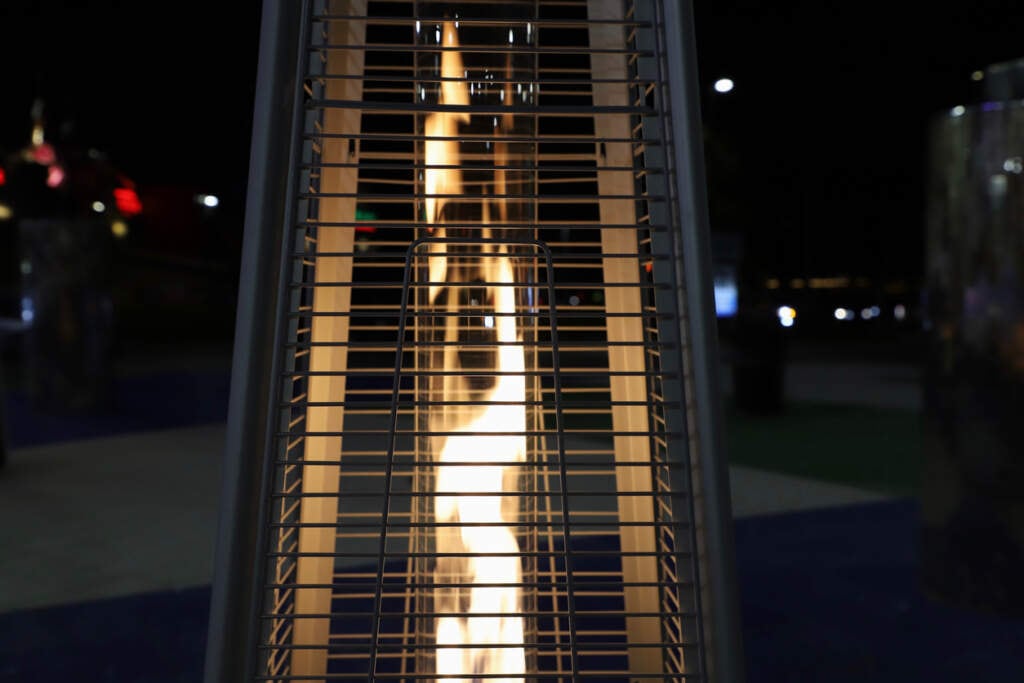
Safety Features
Your new outdoor heater must be equipped with safety features. Look for:
Tip-Over Protection: Automatically shuts off the heater if it accidentally tips over, reducing the risk of fire.
Overheat Protection: Automatically turns off the heater if it reaches a certain temperature, preventing overheating and potential damage.
Flame-Resistant Materials: Ensure your outdoor heater is made from durable and fire-resistant materials to minimise the risk of accidents.
Heat Output and Coverage
Consider the heat output and coverage area of the outdoor heater. The heat output is usually measured in BTUs (British Thermal Units). Determine the appropriate BTU rating based on your heating needs and the size of the area you want to heat. Manufacturers often provide guidelines for the recommended coverage area for each heater model.
Design and Style
Outdoor heaters come in various designs and styles. Consider the aesthetics of the heater and how it will blend with your outdoor space. Choose a design that complements your patio or outdoor decor while providing the desired functionality, whether that be the subtle look of a strip heater or an outdoor fireplace.
Portability and Mobility
If you require flexibility and portability, consider the weight and design of the outdoor heater. Look for models with wheels or handles that make them easy to move and store when not in use. If you want the freedom to place your outdoor heater anywhere, go for a gas heater so no power outlet is required.
Ease of Use and Maintenance
Make sure the outdoor heater you choose is user-friendly and easy to operate. Some models come with remote controls or adjustable temperature and heat settings. Additionally, consider the maintenance requirements, such as cleaning and replacing parts, and choose a heater that suits your preferences.
Energy Efficiency
Consider the energy efficiency of the outdoor heater to minimise expenses and reduce your environmental impact. Look for heaters with energy-saving features such as adjustable heat settings, timers, or thermostats that allow you to control and optimise energy consumption. The most energy-efficient outdoor heaters are firepits, gas outdoor heaters and gas infrared outdoor heaters.
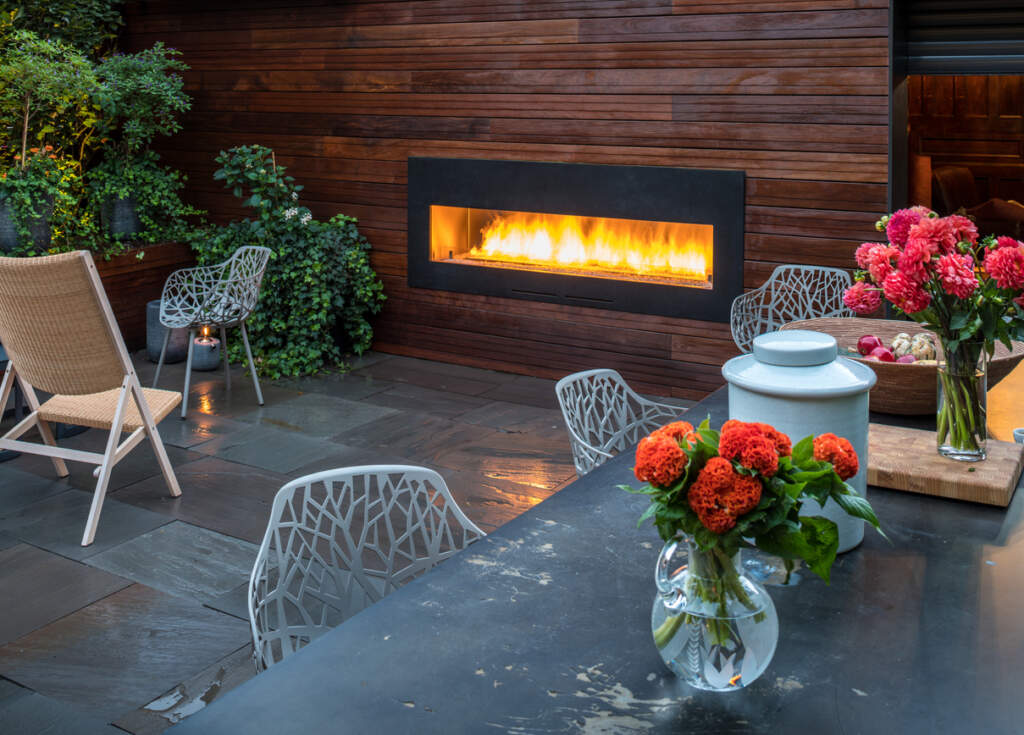
Installation and Assembly
Check whether the outdoor heater requires professional installation or if it can be easily assembled by yourself. Some models may come pre-assembled, while others may require some setup or a professional. Ensure you have the necessary tools and follow the manufacturer’s instructions for safe and correct installation.
Common Questions
Wondering which outdoor heater is the most energy efficient or whether you can use your outdoor heater inside? We’ve got you covered.
Are electrical or gas outdoor heaters more economic?
Various factors come into play when it comes to which is more economical. Here are some considerations.
Since electric heaters run on electricity, they tend to have a higher energy conversion compared to gas heaters. This means a larger portion of the energy consumption is converted into heat.
Gas outdoor heaters, on the other hand, run on gas. The cost of natural gas or propane location and the market, but generally propane is more expensive than natural gas. Gas heaters usually provide higher heat output, but can experience some heat loss due to ventilation and combustion processes, which results in slightly lower energy efficiency compared to electric heaters.
Overall, gas heaters are cheaper to run. Gas heaters convert heat very efficiently and also have a low impact on the environment compared to electric heaters.
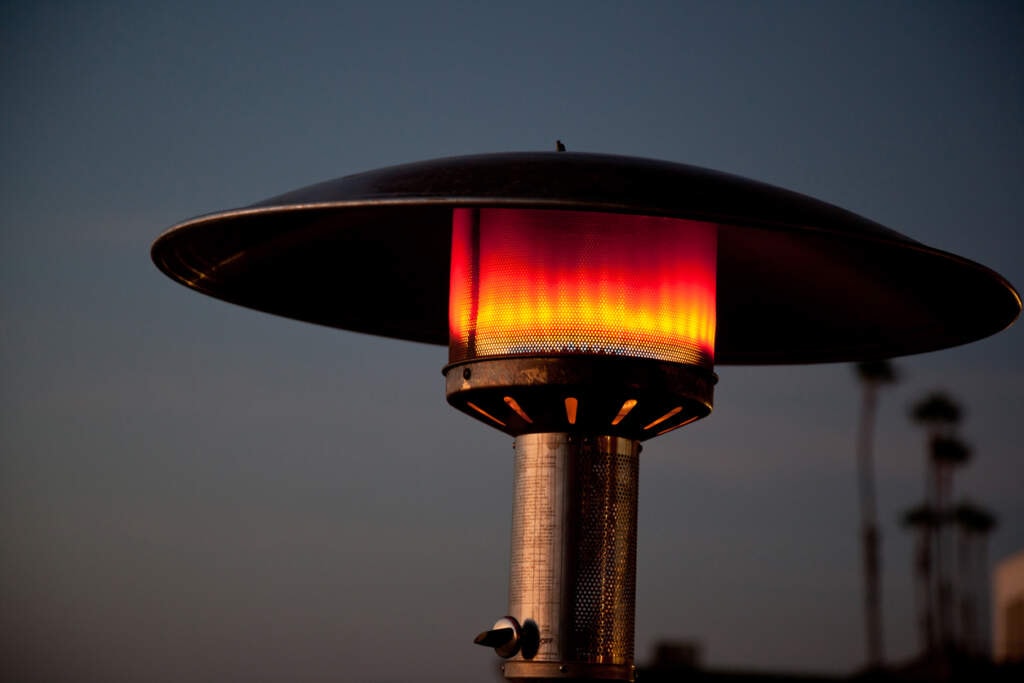
Can outdoor heaters be used indoors?
Short answer, no.
Outdoor heaters are designed for outdoor environments where there is proper ventilation and space for heat dissipation. Using an outdoor heater indoors can lead to serious safety hazards, including the risk of carbon monoxide poisoning, fire or the release of harmful gas.
Can outdoor heaters be left out in the rain?
This depends on the specific model and design of the outdoor heater. Some outdoor heaters are designed to be weather-resistant and can handle light rain and moisture. Make sure to follow the manufacturer’s guidelines and specifications.


